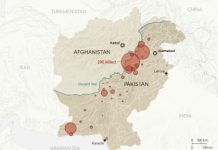In a move that has stirred intense debate across Pakistan’s political spectrum, the Pakistan Tehreek-e-Insaf (PTI) has extended what appears to be an open-ended offer to the government and the establishment. The message, delivered through the public statement of Imran Khan’s sister, Aleema Khan, is straightforward yet loaded with implications: “Tell us what PTI should do so that Imran Khan can be freed.” This unusual and striking appeal has raised eyebrows and triggered speculation about PTI’s current strategy and its future direction.
Some critics have interpreted this statement as a sign that PTI has finally bowed before the establishment — a party that once prided itself on resisting “political engineering” is now seemingly seeking accommodation. To its detractors, this is seen as a humiliating U-turn. Yet others term it a well-thought-out tactical maneuver — a temporary retreat to ensure Imran Khan’s release, after which the party will regain its footing and confront its opponents head-on.
Aleema Khan’s message is important not just because of its timing but also because of the shifting political realities. The courts are set to hear appeals regarding Imran Khan’s sentence on June 5. There is strong speculation that if there are any backchannel negotiations already underway — and many observers believe there are — then this court hearing might produce a dramatic outcome, potentially paving the way for Imran Khan’s return to active politics. If his conviction is overturned or his sentence suspended, it would be a political earthquake and a serious boost for PTI’s morale.
Regardless of whether the statement is tactical or conciliatory, one truth is unavoidable: excluding PTI and its leader from the political mainstream has not brought the stability or unity the country so desperately needs. Instead, Pakistan remains mired in polarization, economic uncertainty, and institutional mistrust. To continue down the path of one-sided politics, where major political forces are sidelined or criminalized, is to risk further fragmentation of the democratic order.
PTI’s offer must be seen through the broader lens of national interest. The current power structure — whether political or institutional — must understand that reconciliation, not repression, is the way forward. Imran Khan, whether one supports or opposes him, still commands the loyalty of millions. Ignoring or eliminating such a large political force is not only unjust, it is strategically unwise.
The courts, meanwhile, must uphold justice without being swayed by political pressure. If Imran Khan’s sentence is legally flawed or politically motivated, it should be set aside — not to appease a party, but to uphold the integrity of the judicial system.
Pakistan’s future lies in inclusive politics. No party or leader should be above the law, but neither should they be punished arbitrarily. PTI’s latest offer — whether read as surrender or strategy — provides an opening. It is now up to the establishment and the government to respond wisely. Rebuilding Pakistan’s fractured political landscape begins with allowing all voices, including PTI’s, a fair chance to be heard.

















